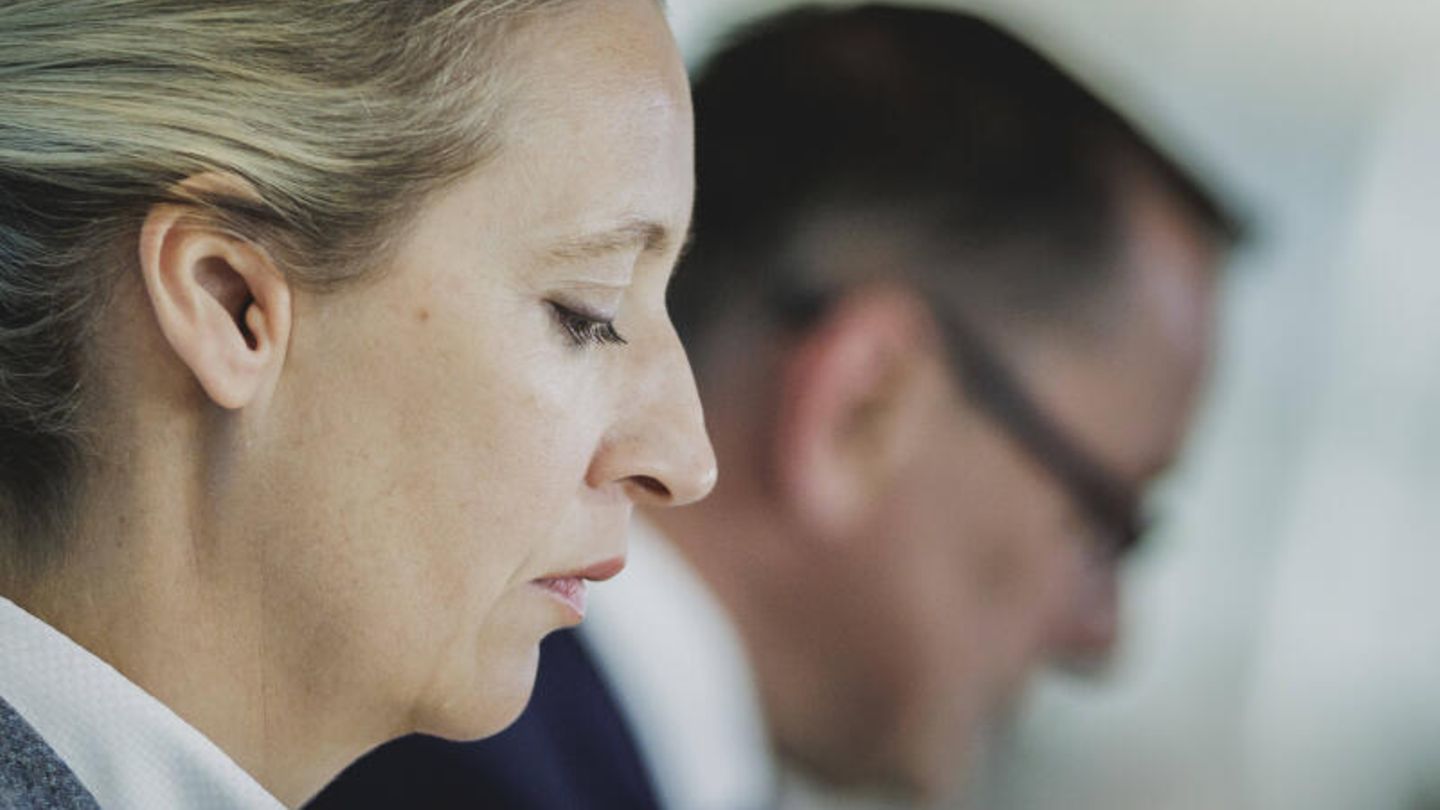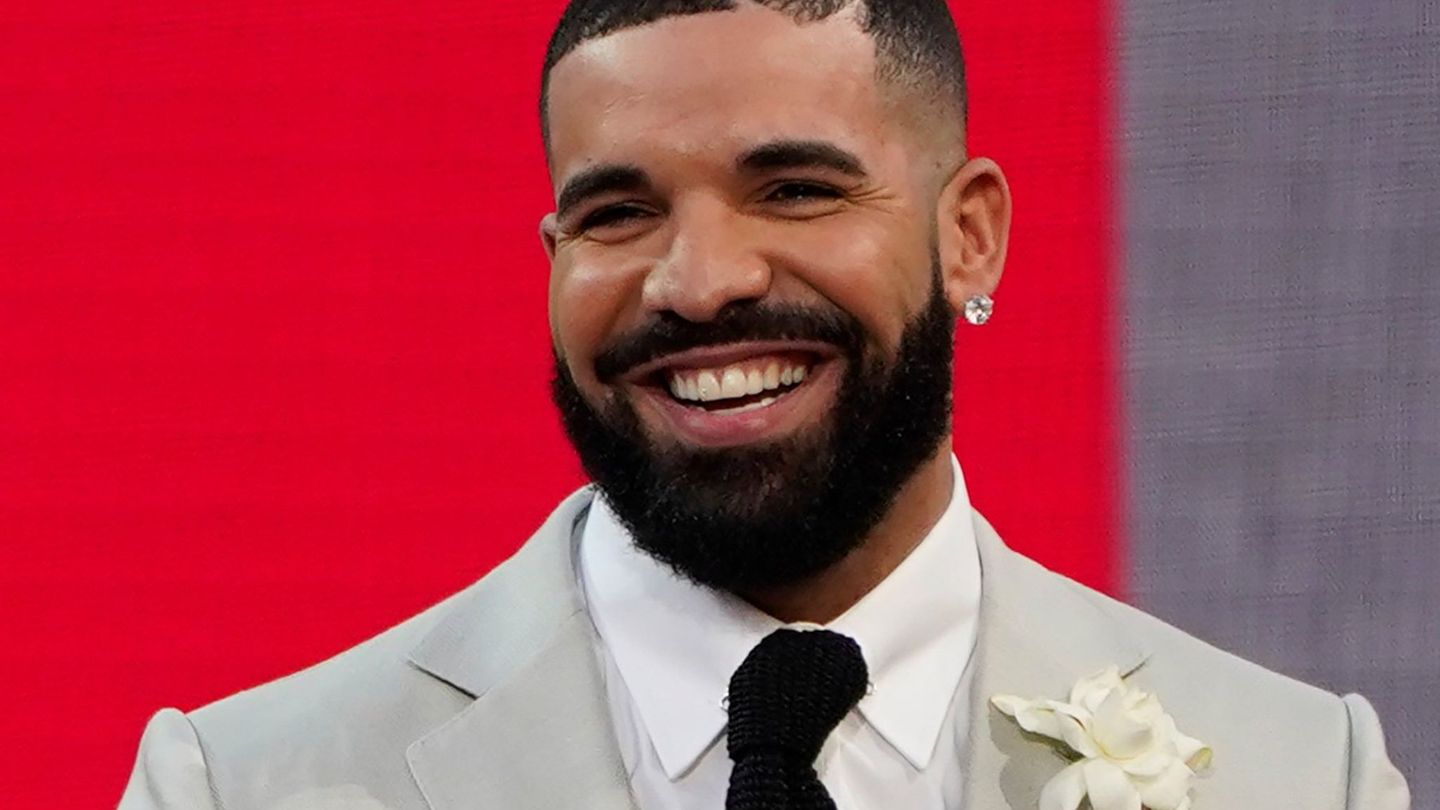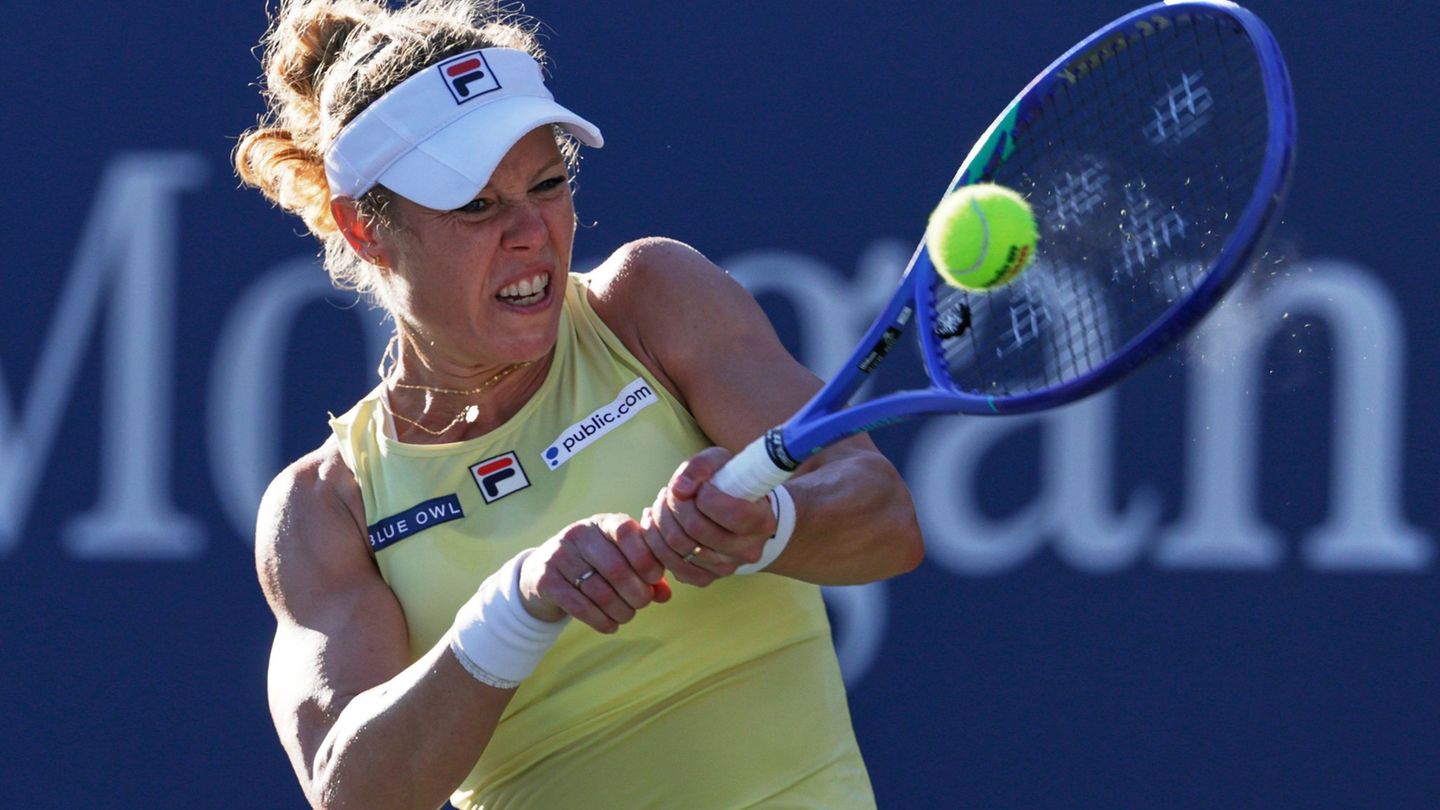opposition
The loud silence of the AfD about the traffic lights being turned off
Copy the current link
For the AfD, the traffic light failure should be a reason to celebrate. But since the coalition collapsed, she has been noticeably quiet. How does the party deal with the situation that has always demanded it?
For years, a battle cry has echoed across AfD party events: “The traffic lights have to go!” The three-way alliance of the SPD, Greens and FDP was the source of all evil for the right-wing party: too left, too woke, too many weapons to Ukraine, too expensive energy costs, too high taxes, too many unemployed, too much unemployment benefits, too weak Economy, Corona measures that are too tough, too many refugees, not enough German culture… The list could go on and on.
Actually, the AfD should now push the government ahead of them, but others are doing that
Now the time has come: After Christian Lindner was kicked out as finance minister, the traffic lights have come to an end. And most observers of political Berlin agreed: the populists, especially the AfD, will benefit from the collapse of the government. Actually, the champagne corks should have been popping in the party headquarters for days. Actually, the party should push the (current) government ahead of it. The tenor: Now is our big hour. “Germany first!”, a breath of Donald Trump wafting through the capital.
But it is remarkably quiet around the otherwise loud party. The AfD leaders Alice Weidel and Tino Chrupalla are doing everything they can to comment on the traffic lights in practically all public broadcasting programs. But the second largest opposition party in the Bundestag cannot avoid anything more than a defiant “We have always demanded it”. The traffic lights are history and the AfD seems at a loss as to how to deal with what they have always demanded.
The first calls for a coalition with the Union are becoming loud. The AfD probably senses, just as Friedrich Merz does, that it is the CDU leader who is driving the government forward. Merz has moved to the front row as opposition leader. It is now he who is making the big demands.
The call for Scholz’ Immediate vote of confidence and early new elections could have just as easily come from the AfD. But the CDU leader had better timing.
The AfD has lost its only point of view: being against it
In doing so, he has obviously put the AfD on ice. The call for quick new elections is no longer exclusive to the populists; practically everyone who is not still in government is now demanding this. The AfD cannot score points with this. And so it finds itself in a dilemma: On the one hand, some AfD members are formulating a government claim and demanding that the Union should now tear down the firewall in order to form a coalition with it. With the deselection of the traffic lights, the voters’ clear desire for a “civil alliance” between the CDU and AfD can be seen.
On the other hand, big names in the party such as the parliamentary manager Bernd Baumann and the disgraced Maximilian Krah are confronting the Christian Democrats because Merz and his Union are more likely to orient themselves towards the Greens or the SPD. “Anyone who votes for the CDU to defeat the Greens will get a Green government again,” is the tenor.
Resignations, distancing, dismissals: these are the consequences of the right-wing network meeting so far
November 25, 2023: Right-wing network meets in Potsdam
On November 23, 2023, high-ranking members of the AfD, Values Union and “Identitarian Movement” will meet with financially strong entrepreneurs and other actors from the right-wing scene in a country hotel near Potsdam. Among other things, the right-wing extremist Martin Sellner will speak about a “master plan for remigration”, i.e. the plan to expel foreigners and German citizens. What the participants in the conspiratorial meeting don’t know: Investigative reporters from the research network “Correctiv” are also on site and are recording the conference.
© Jens Kalaene / DPA
The populist party appears undecided about how to deal with the situation and has therefore lost its only point of view: it has moved away from the point of view of what is supposed to be the only clear opposite pole to the government. The alternative to the traffic lights is currently Friedrich Merz, not Alice Weidel.
AfD will also end up in opposition after the next election
This is a very comfortable position for Merz. With his timing and the good poll numbers behind him, he is giving the populists a run for their money. Even the AfD cannot exceed the maximum demand for immediate new elections.
It is a complicated situation for right-wing populists. They really want to take power. But if they beg too hard from the Union for a junior partnership in a coalition and receive a rejection from Merz, that makes them unbelievable. The narrative of the alternative to the “cartel parties” would be gone. But if it sticks to its confrontational approach and continues to insult the respective governing parties, the probability of forming coalitions with those same parties will remain zero.
So it will probably be Friedrich Merz who will decide on the AfD’s path in the medium term. If the firewall continues to stand, he will probably become their next enemy. After “Merkel has to go” and “traffic lights have to go,” the far right could soon say “Merz has to go.”
Source: Stern
I have been working in the news industry for over 6 years, first as a reporter and now as an editor. I have covered politics extensively, and my work has appeared in major newspapers and online news outlets around the world. In addition to my writing, I also contribute regularly to 24 Hours World.




